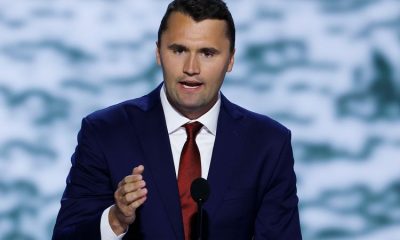Politics
What Will Change Tomorrow if Donald Trump Becomes President Again?
The possibility of Donald Trump returning to the presidency in 2024 raises many questions about the potential shifts in policy, governance, and national discourse.

Here are some areas that may see significant changes if Trump were to assume office again:
1. Economic Policy
• Tax Cuts and Deregulation: Trump has previously pushed for significant tax cuts, particularly benefiting corporations and high-income earners. Expect a continuation or expansion of these policies, potentially aiming to stimulate economic growth.
• Trade Policies: Trump’s “America First” trade policies may lead to the renegotiation of trade agreements and tariffs, especially with countries like China, which could impact both consumers and businesses.
2. Healthcare Reform
• Repeal of the Affordable Care Act (ACA): Trump has long opposed the ACA and may seek to dismantle it further, impacting millions who rely on its provisions.
• Prescription Drug Pricing: His administration may push for policies that influence drug pricing, focusing on reducing costs through negotiation or other means.
3. Foreign Relations
• Isolationist Approach: Trump may favor an isolationist approach, reducing U.S. involvement in international agreements and organizations, affecting global alliances and diplomacy.
• Middle East Policy: Expect a possible continuation of policies favoring Israel and a tough stance on Iran, as seen in his previous administration.
4. Immigration Policy
• Border Security and Immigration Enforcement: Trump may reintroduce stringent immigration policies, including building more of the border wall and enacting measures aimed at reducing immigration, both legal and illegal.
• Refugee and Asylum Policies: His administration might tighten policies surrounding refugees and asylum seekers, impacting humanitarian efforts.
5. Environmental Policies
• Climate Change Stance: Expect a rollback of many environmental regulations implemented during the Biden administration, including re-empowering fossil fuel industries and reducing regulations on emissions.
• Withdrawal from Agreements: Trump may seek to withdraw from or ignore international climate agreements, such as the Paris Accord.
6. Social Issues and Civil Rights
• Judicial Appointments: Trump is likely to appoint conservative judges, which could influence rulings on issues like abortion, voting rights, and civil liberties.
• LGBTQ+ Rights: His administration might roll back protections for LGBTQ+ individuals, impacting rights in various sectors, including healthcare and employment.
7. National Security
• Military Spending: Trump may prioritize increased defense spending, possibly leading to an expanded military presence abroad.
• Law Enforcement Focus: Expect a strong emphasis on law and order, with potential increases in funding for police and law enforcement agencies.
8. Political Discourse
• Divisive Rhetoric: Trump’s return may escalate political polarization, influencing national discourse and potentially leading to increased civil unrest.
• Media Relations: Expect a contentious relationship with mainstream media, with continued allegations of “fake news” directed at unfavorable coverage.
Conclusion
If Donald Trump were to become president again, the U.S. could experience significant shifts in economic, social, and political landscapes. These changes would not only affect policy but also influence the overall tone of political discourse in the country, reflecting a return to the controversial yet impactful approach seen during his first term. As with any political shift, the ramifications would be felt widely, both domestically and internationally.













